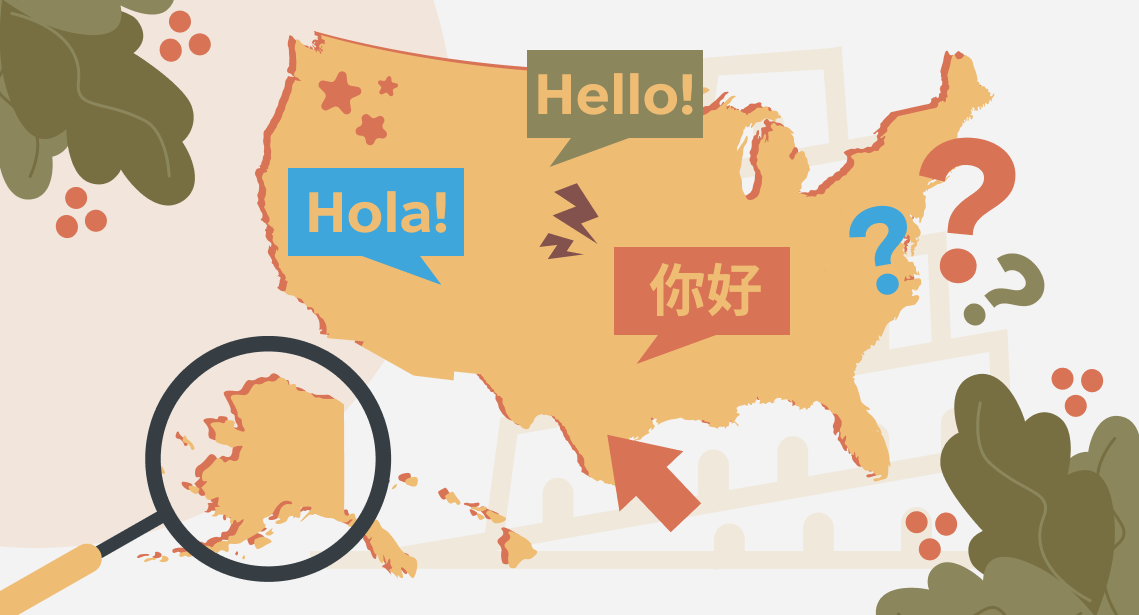Ukrainian Localization for SaaS: Workflow, Pitfalls, Best Practices

Expanding into the Ukrainian market offers a strong growth opportunity for SaaS service companies targeting Eastern Europe. With a large, tech-savvy user base, a rapidly evolving startup scene, and increasing demand for quality software, Ukraine has significant potential for growth. However, achieving success involves more than simply translating your product interface into Ukrainian.
Effective SaaS localization is a careful process that combines language, user experience, legal requirements, pricing, and cultural fit. Companies that view localization as merely translation often end up with low engagement, trust issues, and lost revenue. This article provides a practical SaaS localization workflow, points out common mistakes, and shares proven tips that can help product, marketing, and localization teams achieve lasting success.
Why Ukrainian localization is not just translation
Many SaaS vendors mistakenly think that localization is the same as translation. In reality, translation is just one part of a much broader strategy. While accurate language conversion is important, it only addresses the surface of user experience. Genuine localization for SaaS works at a deeper level, shaping how users understand, trust, and interact with the product in real-world business situations.
In multilingual SaaS products, users do not engage with separate words or sentences—they interact with complete systems, workflows, interfaces, and decision-making processes. Every touchpoint—from the first onboarding screen to billing confirmation and customer support—affects how the product is perceived. If you only translate the text but maintain the same structure, logic, and experience as the original product, it might technically function in another language, but it could still feel foreign, confusing, or misaligned.
True SaaS localization includes:
- Adapting UI text, error messages, onboarding flows, and help content to ensure that instructions, feedback, and guidance feel natural and intuitive instead of mechanically translated.
- Matching tone of voice with local business and cultural norms so communication feels professional, trustworthy, and suitable for the target audience.
- Localizing pricing, currencies, and billing logic, which is a key part of SaaS price localization that directly affects trust and purchasing behavior.
- Ensuring legal and regulatory compliance, including user consent language, privacy policies, and contractual documents.
- Adjusting UX patterns to fit user expectations, such as navigation logic, confirmation flows, and interaction design.
Failing to address these aspects, even a well-translated product may struggle to engage users, build trust, and convert them into paying customers.
Typical SaaS localization workflow
A structured localization workflow enables SaaS teams and vendors to scale efficiently while ensuring quality during product updates, new feature releases, and expansion into multiple countries. Here are the key steps commonly involved in a scalable localization workflow for SaaS.
Internationalization (i18n)
Internationalization supports the growth of multilingual SaaS. In practice, it involves:
- Ensuring proper Unicode support and accurate font rendering
- Designing layouts that can handle longer Ukrainian text
- Adapting date, time, and number formats to local standards
- Implementing currency logic that works well across borders
Ignoring i18n can result in broken interfaces and can limit future expansion into new markets.
Content preparation and localization kits
A good localization kit helps keep consistency across languages and regions. It usually combines source strings and system messages with contextual notes, brand tone guidelines, and approved glossaries. This is especially important for SaaS products with complex workflows and specialized terminology.
Translation and linguistic QA
High-quality Ukrainian localization should always be entrusted to native linguists with SaaS and software expertise. While machine translation can help draft content, it cannot provide the precision and nuance needed for customer-facing material. Linguistic quality assurance helps ensure that terminology stays consistent, phrasing sounds natural for Ukrainian speakers, and the content is clear and suitable for the user experience, as well as helps maintain the brand voice across languages.
Functional testing and release
Once translation is complete, the localized product must be tested in a real environment. This testing confirms that interfaces display correctly, forms and system messages work as expected, and key processes like onboarding, checkout, and upgrades function smoothly. This final stage ensures that multilingual capability is reliable across countries and that the product is ready for release, laying a strong foundation for sustainable growth.
Common pitfalls in Ukrainian localization
Even experienced SaaS companies make expensive mistakes when entering new countries, especially if they treat localization as a technical task rather than a strategic business process, and Ukraine is no exception. In multilingual SaaS environments, small localization choices can greatly affect trust, adoption, and long-term growth. Many of these issues arise not from bad intentions, but from underestimating how deeply language, culture, and user expectations shape how people view software products.
Relying on Russian instead of Ukrainian
In a multilingual SaaS setting, the choice of language speaks volumes about how seriously a company approaches a market. In Ukraine, where Ukrainian is the official language, it is also a critical trust signal to local customers. Products that only have English interfaces or favor Russian often face pushback from users and stakeholders. This resistance stems not just from usability, but also from what that choice represents symbolically.
One harmful assumption is treating Russian as a substitute for Ukrainian. Historically, the prevalent use of Russian reflected external pressures, not the natural choice of Ukrainians. Investing in strong Ukrainian localization shows respect for your audience and indicates a genuine, long-term commitment to the region. It positions your SaaS product as a credible and competitive option among vendors in multiple markets. Language becomes more than just a communication tool—it becomes a sign of reliability, cultural awareness, and strategic intent.
Inconsistent terminology across the product
Without a centralized terminology system, SaaS terms often end up with multiple translations for the same concept across UI, onboarding, documentation, and support materials. The problem becomes apparent as products grow, features expand, and multilingual versions are added for different countries.
Inconsistent terminology increases cognitive load and creates confusion, especially in complex SaaS platforms with layered workflows, permissions, and configuration logic. Users may struggle to determine whether two terms refer to the same function or two different features. In a multilingual SaaS product, terminology consistency is not just a linguistic issue—it is a usability issue, a UX issue, and ultimately a product quality issue.
Ignoring UX and microscopy localization
Microscopy—such as buttons, tooltips, error messages, onboarding hints, and system feedback—plays a central role in users’ experience with software. Literal translations often produce language that feels stiff, unnatural, or overly formal in Ukrainian, even if it is technically correct.
Good localization for SaaS adapts microscopy to real user behavior:
- It supports user actions instead of merely describing them
- It reduces friction instead of adding cognitive effort
- It guides users instead of overwhelming them with formal language
When microscopy is poorly localized, users may feel uncertain, confused, or frustrated, even if the core product functionality is strong. This is especially harmful in onboarding and activation flows, where first impressions determine long-term retention.
Underestimating ongoing localization and multilingual maintenance
Localization is not just a launch event, but an ongoing process. SaaS products evolve constantly: new features, UI updates, pricing changes, new onboarding flows, new integrations—the list goes on. In multilingual environments, every change creates a localization dependency. Companies that fail to build long-term localization workflows often end up with:
- Partially translated interfaces
- Outdated Ukrainian content
- Inconsistent multilingual experiences across countries
- Broken user journeys in localized versions
Sustainable localization for SaaS requires continuous maintenance, structured workflows, and integration with product development cycles.
UX, legal, and language nuances in Ukraine
UX expectations of Ukrainian users
Ukrainian users generally value clarity, reliability, and ease of use in software, along with transparent communication and straightforward product positioning. Products that feel stable, coherent, and intuitive tend to be adopted more easily over time.
Typical expectations include:
- Clear navigation and predictable user flows
- Transparent pricing and feature descriptions
- Direct, professional communication
- Minimal friction during onboarding and setup
Users tend to engage more readily with products that communicate value clearly and fit naturally into their daily workflows. Logical structure, predictable system behavior, and consistent terminology help users build confidence and reduce friction.
Legal and compliance considerations
For SaaS companies expanding across countries, legal localization is often underestimated. In Ukraine, localized legal content can be a decisive factor in enterprise and B2B adoption. This may include:
- Terms of Service and Privacy Policy in Ukrainian
- User consent and data processing language
- Clear billing, invoicing, and contractual terminology
In multilingual SaaS service platforms, localized legal documentation strengthens trust, simplifies procurement processes, and reduces friction in enterprise sales cycles.
SaaS price localization: pricing and monetization in different countries
SaaS price localization plays a critical role in how users perceive value, fairness, and transparency. In multilingual SaaS products operating across countries, pricing is not just a financial model—it is a trust mechanism.
Even when payments are processed globally in EUR or USD, users expect clarity. Transparent pricing communication, understandable billing logic, and clear invoice terminology build confidence and reduce friction.
Saas price localization is not the same as simple price conversion. Effective localization considers:
- Local purchasing power
- Market competition in specific countries
- User expectations around billing cycles
- Annual vs. monthly subscription preferences
Multilingual SaaS platforms that adapt pricing logic strategically often outperform global one-size-fits-all models in local markets.
Best practices for SaaS localization teams
Successful localization for SaaS requires structure, ownership, and long-term planning. Localization works best when it is considered as a part of the product process from the beginning, rather than something added at the final stage.
When language support is built into development workflows early on, it becomes easier to maintain consistency and avoid fragmentation as the product grows. Shared glossaries, clear style guidelines, and structured translation memory systems help keep terminology, tone, and messaging aligned across all multilingual content.
At the same time, strong localization depends on collaboration. When product teams, designers, engineers, and localization specialists work together, localization becomes more integrated, efficient, and scalable across different countries and markets.
Working with native Ukrainian linguists who understand SaaS products, UX design, and business communication adds another layer of quality. It helps ensure that the product feels natural to users, functions intuitively, and communicates clearly, which ultimately strengthens usability, credibility, and long-term trust.
Final thoughts
Successful localization for SaaS is not about adding another language version to a product—it is about making people feel that the software was built with them in mind. In Ukraine, it means more than just precise translation. It requires a deep understanding of how users operate, what they expect from digital tools, and which factors foster trust in professional settings.
When localization is treated as part of product thinking rather than a technical task, it stops being a cost and becomes a growth driver. It gives SaaS products a clear, familiar, and reliable feeling. And in the long run, that is what turns market entry into real adoption, trust, and sustainable growth.




